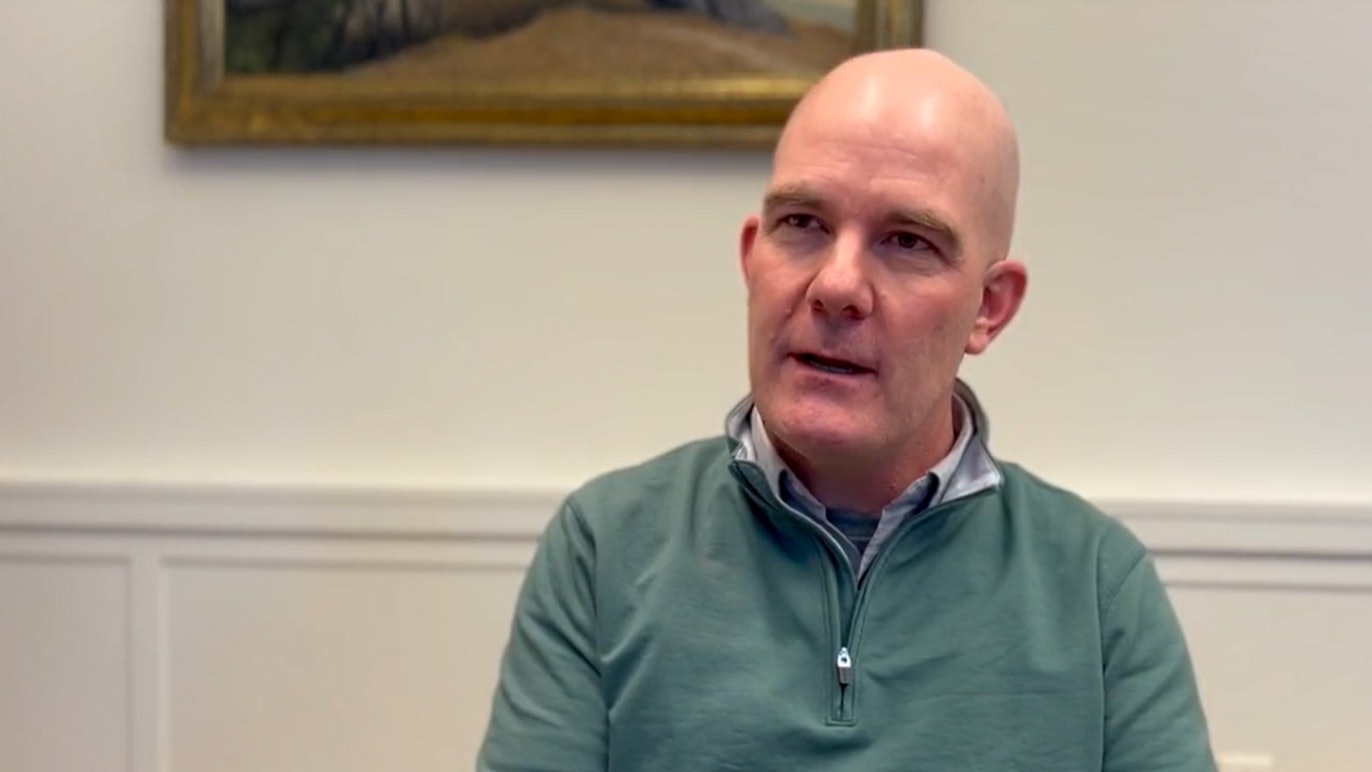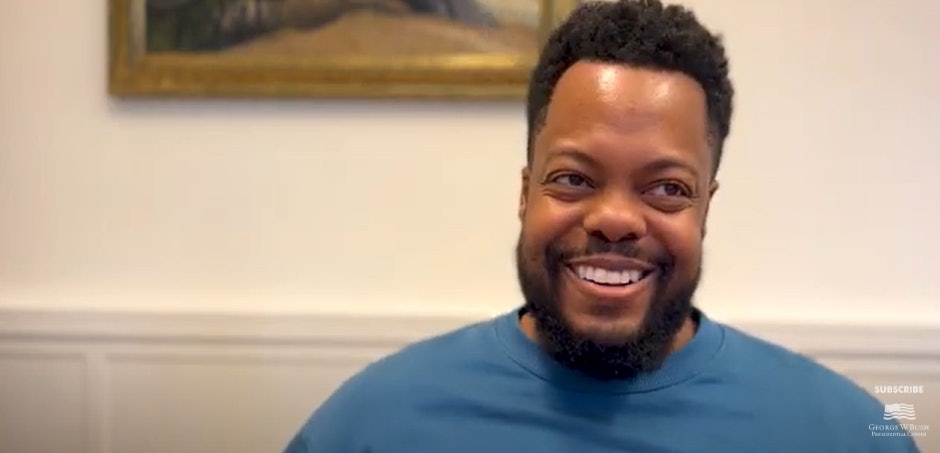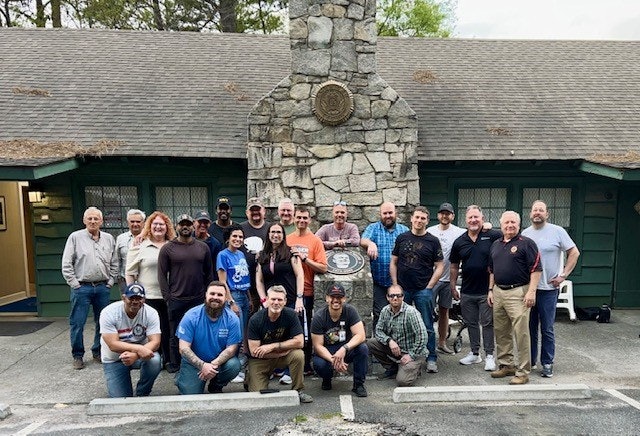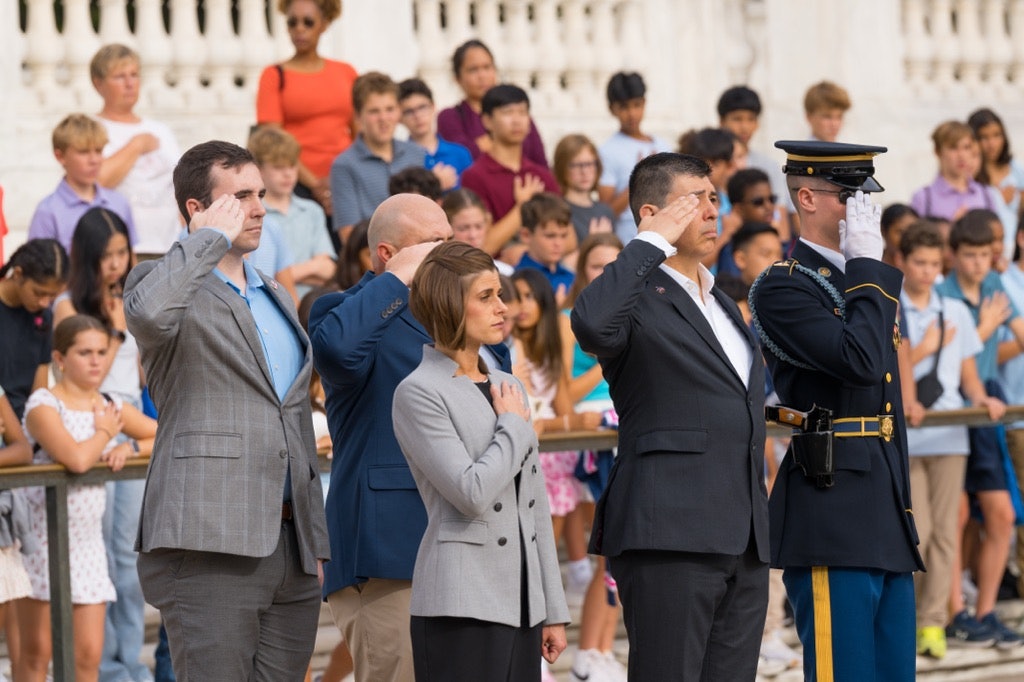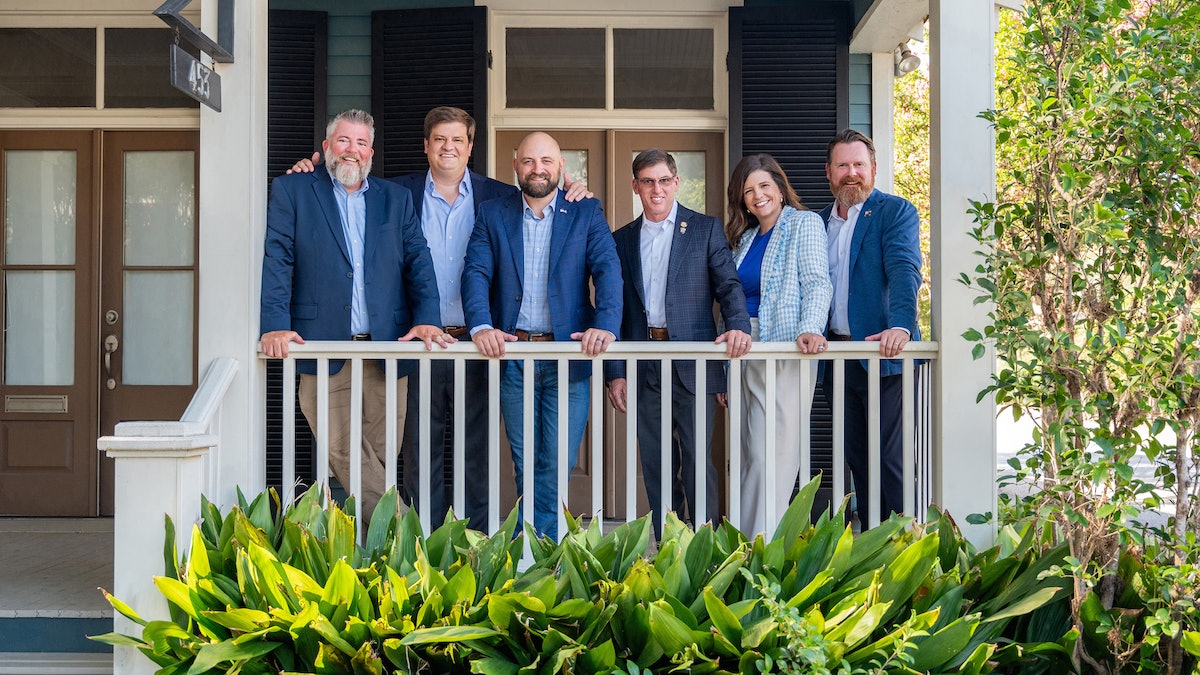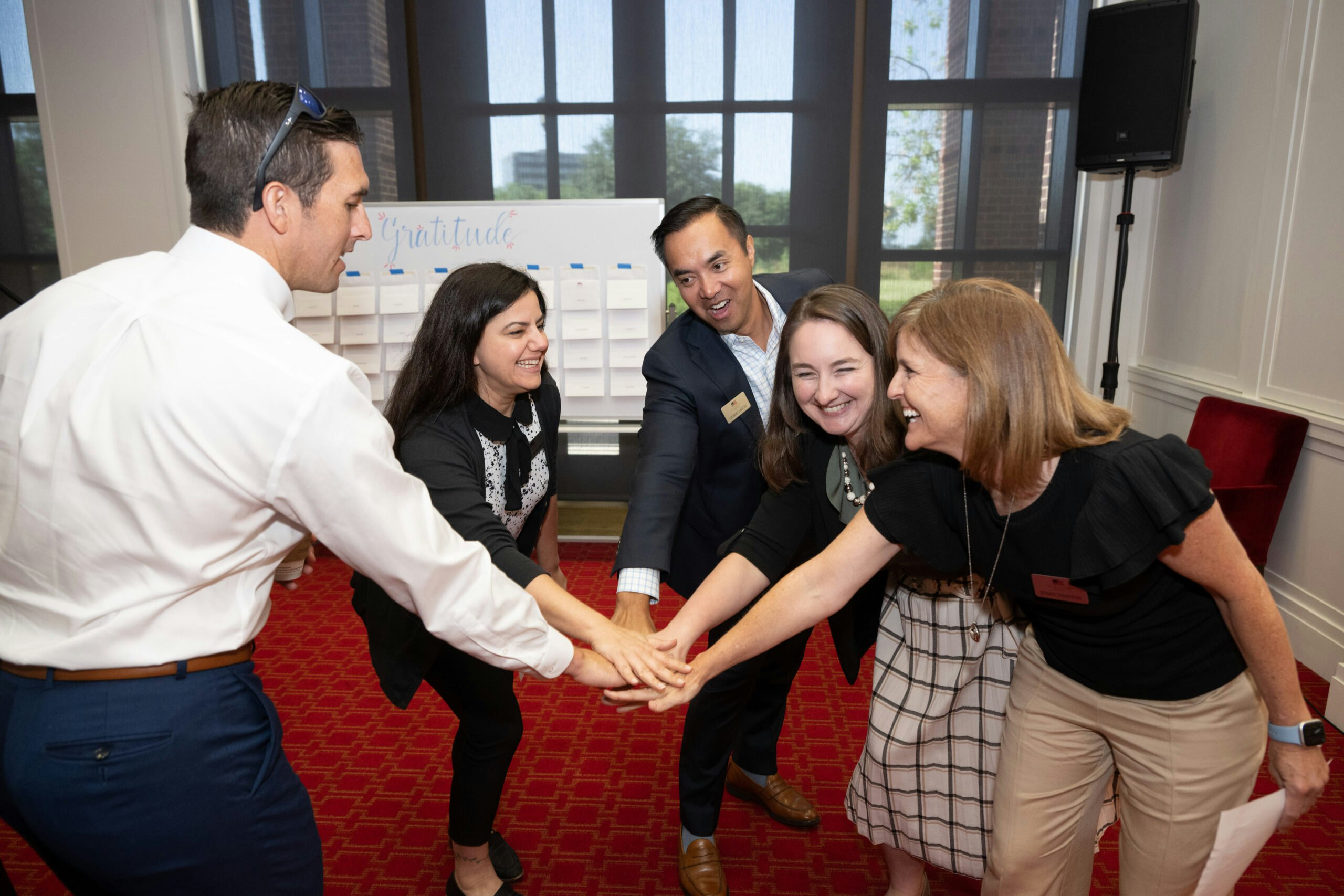Molly Brooks, CEO and Founder of Hero's Bridge and 2022 Veteran Leadership Scholar, shares how her organization is leading a movement serving our nation’s elderly veterans and how a Veteran Leadership Program collaboration is helping to maximize its impact.
Please tell us a little bit about yourself and your service to the veteran community.
I was born at Camp LeJeune, the daughter of a career Marine with two tours of Vietnam under his belt. My early formative years were spent on Marine Corps bases during the height of that long and protracted war. My father retired when I was just 7 years old, so I had the wonderful experience of growing up in the footsteps of a larger-than-life Marine. I truly believe Marine Corps “brats” are a rare breed. We are taught work ethic, toughness, fierce patriotism, and to stand up for those that cannot defend themselves.
That being said, the ’80s were a tough time for our Vietnam veteran families. There was no recognition of post-traumatic stress or Agent Orange exposure. The VA focused mostly on those with catastrophic injuries, and America generally was not kind to our returning servicemembers. It was up to the wives, children, and communities to love and care for our own Vietnam veterans. That is what our family did, and I like to think that experience helped me later in my nursing career to notice the veterans under my care … and to know we needed to do more.
Can you discuss your passion for serving elderly veterans specifically? What drives the work you do?
After nursing school, every nurse must choose the field they want to practice. When all my friends were choosing the higher paying emergency rooms and ICUs, God placed it on my heart to work with the elderly. It wasn’t completely altruistic; I just loved them. Our older generation is so full of years, stories, humor, and spot-on wisdom. None more so than our older veterans.
I obtained a specialty certification in gerontology, which required a deeper dive into systemic issues and shortfalls in the care of our nation’s aging population. At the same time, I was in a leadership position of a large hospice organization. Most of the care in hospice is provided in the home setting, so we weren’t seeing a sterilized version of a patient in a hospital bed. We were seeing up close and personal the substandard living conditions of many of our senior citizens. I began to notice that many of our most challenging situations were veterans, and they were falling through the cracks of our fragmented health care and social systems. In 2016, I raised $750 from family and friends to file the 501(c)(3) paperwork for Hero’s Bridge, a nonprofit specializing only in the needs of veterans aged 65 and older. I had no idea then how rapidly it would grow both in veterans in need as well as volunteers and supporters that want our older veterans to be cared for. It has been my greatest joy and privilege to lead this movement.
Please give us an update on what you have been working on since completing the Stand-To Veteran Leadership Program.
I have spent the most time on two projects in our rapidly growing organization. The first is establishing the first nationwide call center just for older veterans, as I proposed in my personal leadership project. I asserted that what the older veteran needs is so much different than the needs of our younger veterans. The VA and post-9/11 serving organizations will always struggle to meet the needs of this generation unless we diversify and specialize the care to their needs. At Hero’s Bridge, we aim to be a trusted resource to other veteran-serving entities, and we can partner in serving the older veterans across America. We established the Battle Buddy Call Center in June of 2023, and we now follow hundreds of veterans from California to Massachusetts and everywhere in between. Our Battle Buddies arrange meals, rides to the doctor, home repairs – and sometimes they just talk about the good ol’ days.
The second major focus has been addressing the affordable housing crisis with the Hero’s Bridge Village. Just outside of Washington, D.C., we are building a small community of 44 cottages just for older veterans. The entire nation is facing a housing crisis; we must create more housing stock and more diverse types of housing. Our seniors are being priced out of most rental markets. It is not uncommon for us to meet veterans that are paying $1,200 a month for a substandard studio, yet they only receive $1,400 month in Social Security. Our Village will focus on simple aging in place features with supportive services provided by our Battle Buddies. The cottages will be deeply affordable rentals and a place of healing and rest for our older heroes.
What is something you wish more people knew about this veteran population and the challenges they face?
I would first like to remind everyone of the sheer numbers of aging veterans across America. Roughly half of America’s veterans (8.1 million) are over the age of 65. To improve outcomes in our entire veteran community, we simply cannot leave them out of the equation. We also must offer a different care model to them. At Hero’s Bridge, the community never calls us about older veterans that are doing well. In order of frequency of need, we receive calls to address social isolation, housing issues, transportation, and nutritional needs. We have built our programs and core values around these needs.
You recently teamed up with a fellow Stand-To Veteran Leadership Program Scholar who leads Evocati PR. Can you discuss how you began to work together and the value of the Veteran Leadership Program network?
Although meeting a U.S. president might be on many people’s bucket list and for me it is certainly something to tell the grandkids about, the day-to-day value of the Veteran Leadership Program is the value of the network of your cohort and the alumni. During my time at the [George W. Bush] Institute, I was constantly amazed at the quality of character and the diversity of experience of my classmates. Hero’s Bridge is growing so rapidly and, to reach more veterans in need as well as more supporters, we needed the expertise of a PR company. I knew exactly where to reach out. One post on our communications platform yielded several quality PR firm recommendations including Evocati, led by program alumni Barrett Bogue. We spent weeks interviewing firms and reviewing proposals. In the end, the choice was easy. Knowing the quality of the selection process for the Veteran Leadership Program, the leadership content we all received at the Institute, and that he is a Marine, I chose to work with Barrett and the Evocati team. We are a few months into our collaboration, and it is turning out to be a perfect match. I look forward to their assistance in refining our message and communications.






